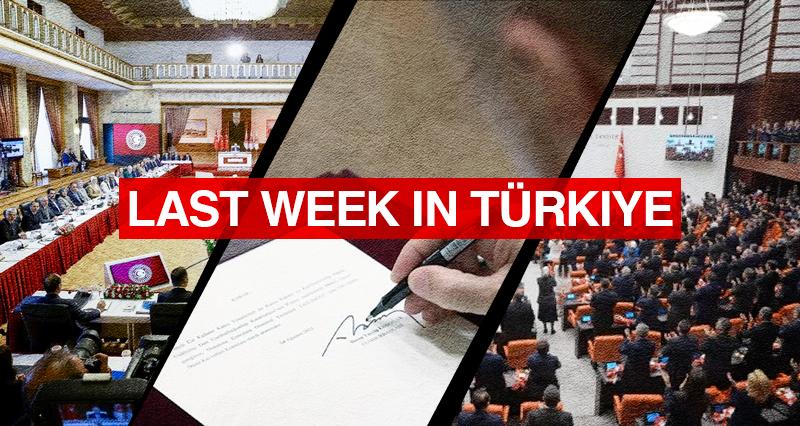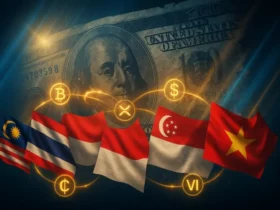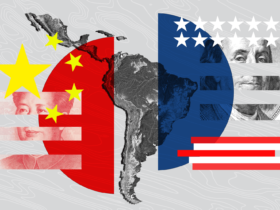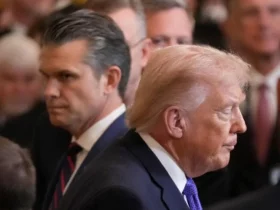Main political events in Türkiye during the last week.
Main political events in Türkiye during the last week.
Last week was a busy one in Türkiye’s political agenda.
At the top of the list was the first meeting of the parliamentary commission for the “Terror-Free Türkiye”. The commission was named as “National Solidarity, Brotherhood and Democracy Commission”.
Another important development was the decisions taken at the Supreme Military Council (YAŞ).
And the fake university diploma scandal caused public outrage nationwide.
The parliamentary commission for the “Terror-Free Türkiye” convenes
Following PKK leader Abdullah Öcalan’s call, On July 11, the PKK had held a symbolic disarmament ceremony in Iraq’s Sulaymaniyah with a group of 30 members and announced that the organization has been dissolved. Now as part of the “Terror-Free Türkiye” process, a parliamentary commission was formed in the Grand National Assembly (TBMM). The commission held its first meeting on August 5.
According to a statement released on the Parliament’s official social media account, the body was named as “National Solidarity, Brotherhood and Democracy Commission”. In the first meeting, the participants unanimously approved its working procedures and principles.
All parliamentary parties attended the meeting except the Good Party, which declined participation, arguing that the Commission’s purpose and function were unclear and that joining would “legitimize the demands of a terrorist organization.”
The inaugural session was chaired by Parliamentary Speaker Numan Kurtulmuş.
Following the meeting, the commission issued the following statement:
“At this historic moment for our country, the Commission will play a key role in shaping our future and ensuring lasting peace. It will identify necessary legislative changes, prepare draft bills, and inform the public about the process. Representatives from both parliamentary groups and parties that do not have groups in the parliament shared their views on the process and the Commission’s importance. The working procedures and principles of the Commission were unanimously approved.”
On August 8, the Commission held its second meeting. Notably, the Interior Minister, the defense minister, and the National Intelligence Organization chief participated to brief members on their work and recent developments.
Meanwhile, a ten-year confidentiality rule on the topics discussed, passed unanimously by participating parties, sparked public criticism.
According to the decision taken on the first meeting, a quorum will require an absolute majority of members. Draft bill proposals will need three-fifths approval, while other decisions will be made by a simple majority of those present.
Full transcripts will be kept for all meetings, but whether they will be made public will be decided by the Commission. Closed-session transcripts will remain classified.
The Commission will operate until December 31, with the option to extend its work in two-month increments by a three-fifths majority vote. The same majority can also decide to terminate the commission early.
The opening speech of the Commission was held by Parliamentary Speaker Numan Kurtulmuş. He said:
“There are moments in the life of nations that shape not just the present, but also the future. Today is one of those days, a historic turning point. We must seize this opportunity. Just as our nation has stood united in the most challenging times to defeat the scourge of terrorism, we will now overcome it with the same determination, faith, and solidarity.”
The DEM Party, linked to the PKK, used the session to call for the release of Abdullah Öcalan as well as former party co-chairs Figen Yüksekdağ and Selahattin Demirtaş.
AKP MP Kürşad Zorlu signaled possible constitutional amendments but warned against exploiting the Commission’s work to push for changes that could undermine national unity. He emphasized that the first four articles of the Constitution enjoy broad public support and oversight.
MHP leader Devlet Bahçeli, a key figure in the process, said:
“The Commission, through broad consensus and consultation, will draft the legal, judicial, and political preamble to a Terror-Free Türkiye.”
MHP has also launched “National Unity and Solidarity Meetings for a Terror-Free Türkiye” to inform the public. The press attributed this move to public reaction to the process. The first of those meeting was held in the city Erzurum, where MHP Deputy Chairman Semih Yalçın stated:
“As the Terror-Free Türkiye project is implemented, there will be no compromise on our unity, integrity, national sovereignty, or the principle of the national state. (…) Eliminating terrorism, backed by imperialist powers, will take time. This issue is not merely a domestic matter—it is tied to regional and global developments. Some linked to the group but uninvolved in crimes could reintegrate into society, but that will require conditions to mature and certain regulations to be made. (…) Achieving a Terror-Free Türkiye means peace in the Caucasus and Eastern Mediterranean, a fair status for the Aegean, protection of Turkish Republic of Northern Cyprus’s rights, stability in the Balkans, a united Syria, preservation of Iraq’s territorial integrity, renewed alliances between regional countries, an end to the atrocities and genocide in Gaza, prevention of Israel’s annexation of the West Bank, safeguarding the Al-Aqsa Mosque, the independence of Jerusalem, and the survival of the Palestinian state.”
The opposition CHP’s participation in the AKP-MHP-led commission drew backlash from its grassroots. CHP leader Özgür Özel responded:
“Some are trying to portray this as if all commission meetings will be held in secret. Let me be clear: nothing can be hidden from the people where CHP is present! We’ll be meeting with veterans’ associations again in the coming days. No one can betray the Republic. The CHP is here, Atatürk’s party is here.”
Media reports claimed that several CHP figures, including Ankara Mayor Mansur Yavaş, were critical of the process.
Vatan Party leader Doğu Perinçek also criticized the Commission:
“The commission has no programme. When a body like this is formed, the government should present a proposal. Without that, what is this Commission for? You’ll see it will go nowhere.”
Perinçek reminded that his party had already drafted an amnesty bill related to the disarmament process and put this draft forth as a ground for discussions.
Victory Party leader Ümit Özdağ also weighed in by calling the Commission as “Öcalan Commission”:
“Yesterday, the Öcalan Commission held its first meeting in the Parliament. They say its job is not to draft a constitution but to oversee the PKK’s disarmament process. Can Parliament’s role be to monitor a terrorist group’s disarmament? That’s the job of the intelligence service and the military. The real aim here is to elevate Öcalan from a convicted terrorist to a legitimate political leader, and to prepare the public psychologically for constitutional and legal changes he demands.”
Supreme Military Council (YAŞ) decisions
The YAŞ meeting determined the new chain of command in the Turkish Armed Forces, starting with the Chief of General Staff.
According to the Presidential Communications Directorate, the 2025 YAŞ meeting at the Presidential Complex decided on promotions, term extensions, and retirements for generals, admirals, and colonels.
Effective August 30, 32 generals and admirals were promoted, along with 61 colonels elevated to general or admiral ranks. The terms of 29 generals were extended by one year, and those of 478 colonels by two years.
Two generals will retire due to age limits as of September 1, 2025, while 43 others will retire due to lack of available posts as of August 30, 2025.
Chief of General Staff General Metin Gürak retired, replaced by Land Forces Commander General Selçuk Bayraktaroğlu. The Land Forces were then assigned to 1st Army Commander General Metin Tokel. The terms of Navy Commander Admiral Ercüment Tatlıoğlu and Air Force Commander General Ziya Cemal Kadıoğlu were extended for one year.
As of August 30, 2025, the total number of generals and admirals will increase from 316 to 332.
Fake diploma scandal
Another major story of the week was the “fake university diploma”, allegedly involving MPs among others.
According to allegations reported in the press and subsequently investigated by the authorities, a criminal organisation obtained fake Turkish ID cards and driving licences, and applied through certain e-signature providers to obtain qualified e-signature certificates in the name of others.
CHP MP Mehmet Güzelmansur had already raised the issue in a parliamentary question in 2022, but the motion was rejected by AKP and MHP votes.
Dozens of people, including MPs, bureaucrats, academics, and businesspeople, are suspected of obtaining fake diplomas.
CHP parliamentary group deputy chair Gökhan Günaydın submitted four separate parliamentary questions to the interior, health, education, and transportation ministers. The parliamentary question to the Interior Minister reads as follows:
“The public needs clear answers on what security forces know about this forgery network, what operational measures have been taken, and whether the archives of public officials will be reviewed. Otherwise, this will go down in history not as an individual fraud, but as proof of institutional failure.”
The scandal, now under official investigation, has caused public outrage.
Ankara’s 23rd Criminal Court of First Instance has opened a case against suspects on charges including violating the Higher Education Council law, forging official documents, illegal access to IT systems, and unlawful data acquisition with a possible prison sentence of 6 to 45 years. Sixteen suspects are in custody, with indictments filed against 134 people in total.
Prosecutors allege the suspects hacked Gazi University and the Ministry of Education systems via electronic certificate providers “TÜRKTRUST” and “E-İMZATR”, created graduation records, issued fake diplomas, altered exam results, and charged up to 400,000 Turkish lira per fake document.

















Leave a Reply